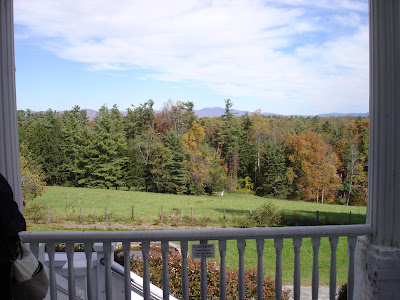
Yesterday I signed a purchase agreement. Previously I thought hard about the possible options and decided against the purchase at least in the short to medium time frame. But it all changed yesterday when I signed the agreement. Why did I change my mind and went ahead against my own reasoned thinking? I guess this decision was a long time coming at least in the recent weeks when I pondered the best way to invest. I guess my option was to keep a large part in the bank and save for my kid’s education. My mind changed when I visited my friend’s home, the predicted rise in real estate prices next year and the possible loss of this supposed bargain if one doesn’t act now.

So this morning I started to search the Internet, looking at the Chinese zodiac predictions for next year – the year of the Tiger. For those born on the year of the Rabbit, the Tiger year of 2010 seem to offer a promising year in wealth, career and prosperity for Rabbits. But there are danger signals as well so Rabbits need to be careful. So the sage advise is to be prudent in expenses, work hard and ask help if in trouble. One even mentioned about changing one’s home and acting right away to get a good deal! It’s a laugh that after going through logical and reasoned analysis, one then goes to horoscopes and superstitions to check if one made the right decision.

Perhaps it’s the Asian in me to consult the stars and the supernatural to make sure I am on the right path. Now I guess the stars seemed to be aligned towards my decision in most predictions. The real trigger was to give my kids more room as the current place is too small. Looking back at my experience, real estate investing has given me more gains than stocks or bonds. One still invests in stocks but at a reduced rate. There are a lot of risks especially on rental but it seems to be the best play that one can get with his cards. I still have a few strategies left to play and the most important thing is to have a plan. It just takes the will and focus to pull through.
Next year, the best resolution to improve myself is to control my distractions and time wasting activities. I think it’s the most difficult thing to do because its seductive power fools one that he does not realize the battle is lost already. It’s like a slow descent into corruption or decadence. This includes borrowing too much books or DVDs in the library or surfing the Internet. It’s my main stumbling block and realizing it is the first step. Creating a working plan and following it is the next step. I have also thought about studying for another skill like medical transcription and strict control of time and focus to help one reduce these distractions can achieve this other goal, too.
I think I reached a point where one knows what to do in terms of investing as well as in writing and publishing. I have read a lot of books, attended seminars and surfed the Internet to get the needed information. It’s now time to hustle. The end of the year is the best time to take stock of one’s efforts, find out ones mistakes, know areas for improvement and plan for the next year. The previous months also served to acclimatize to the new environment and learn the rules. Finally, journalizing or reflecting is an enabler and I liked a quote I read, ‘One does not write to be understood but one writes to understand.’ It from a book called ‘Creative Journal Writing’ which actually promotes self-transformation and change. I guess one has got all the tools to make the next step.





























